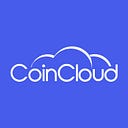Crypto vs Virtual vs Digital Currency
Is Cryptocurrency the Same as Virtual and Digital Currency?
Digital currency? Virtual currency? Cryptocurrency? What’s the difference? Are they all just the same thing?
No … not exactly. But they are all related.
Digital currency is a broad topic, and comprises several subsets, including virtual currency and cryptocurrency. While these three terms are often used interchangeably, they’re technically not the same — they’re categories in a hierarchy.
If “digital currency” is equated to “dog”, “virtual currency” is like “Poodle” and “cryptocurrency” is “Toy Poodle” (each is a more specific version of the previous larger category). Since Bitcoin is the most famous crypto, we’ll call it a “Teacup Poodle” — the most famous type of Toy Poodle.
Digital Currency
Digital Currency is any currency in digital format, including popular payment platforms like PayPal, Venmo, Zelle, Apple Pay, Samsung Pay and Google Pay … and even your online bank account, since the numbers you see when you log in are just digital representations of real money. The bank doesn’t necessarily hold paper “fiat” (government-issued) currency in the same amounts as all the bank account balances in existence. But you can ultimately trade it in for paper money if you want to. Virtual currency is a type of digital currency (like Poodle is a type of dog). All Poodles are dogs, but not all dogs are Poodles.
Virtual Currency
Virtual currency is a category of digital currency that only exists in virtual form. Unlike digital currency in your bank account, virtual currency is unregulated, which means it often experiences dramatic price fluctuations. It’s currency because we say it’s currency, and it has value because we say it has value — not because it’s issued by a government or other overseeing party. The only true force it holds is consumer sentiment, and as you know, emotions can go up and down in extreme ways.
In the world of virtual currency, some are mined by a computer, some aren’t. Some are backed by fiat currency, some aren’t. Coin Cloud allows you to buy and sell 29 virtual currencies, including Bitcoin and 28 altcoins, each one created for a specific use.
Cryptocurrency
Cryptocurrency is a specific type of virtual currency. It includes Bitcoin, the most famous crypto, as well as some others. But while “cryptocurrency” is often used as an all-encompassing term, technically cryptocurrencies are only mined digital currencies, almost always recorded and verified on the blockchain. This category includes the big players you’ve probably heard of — Bitcoin (BTC), Bitcoin Cash (BCH) and Litecoin (LTC) — as well as Ripple (XRP), Stellar (XLM) and Monero (XMR).
It also includes smart contract currencies, which allow you to build other currencies on their blockchain, including Ethereum blockchain’s Ether (ETH), Tron blockchain’s Tronix (TRX) and the Loom Network’s LOOM.
Many of these virtual currencies can be bought and sold at Coin Cloud digital currency machines (DCMs), commonly referred to as Bitcoin ATMs (BTMs).
Want to explore this topic deeper? We invite you to download our free Ultimate Guide to Digital Currency to find out more.
What is Coin Cloud?
Coin Cloud is a digital currency machine (DCM) company headquartered in Las Vegas, Nevada. With over 1,200 locations nationwide, Coin Cloud boasts the world’s largest and fastest-growing network of two-way digital currency machines, commonly known as Bitcoin ATMs or BTMs. Since 2014, Coin Cloud has helped hundreds of thousands of customers buy and sell cryptocurrency and other virtual currency quickly and easily. You can find your nearest Coin Cloud DCM here.
